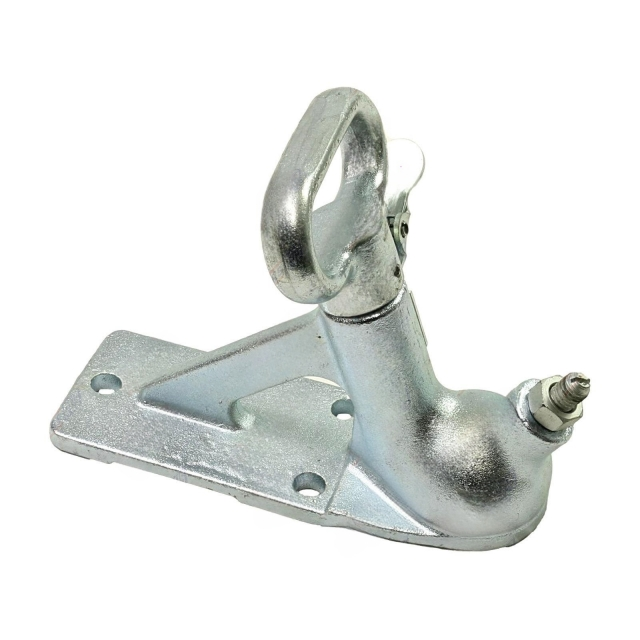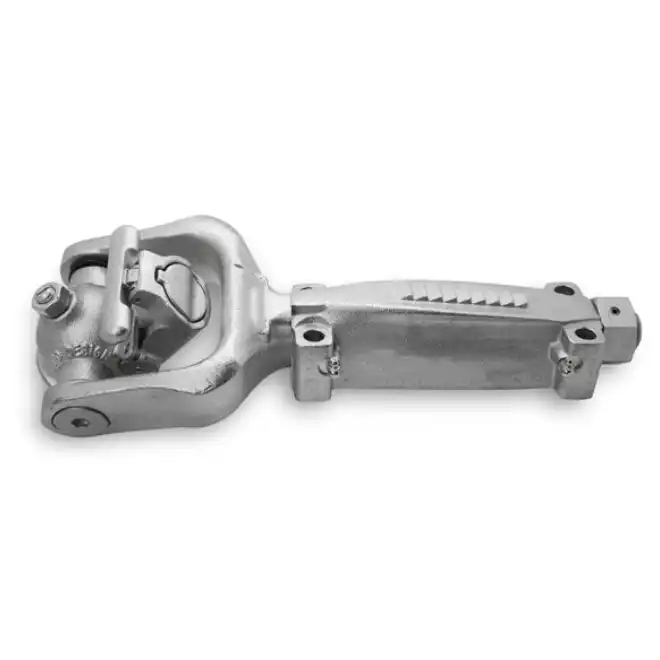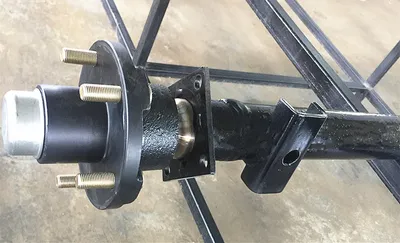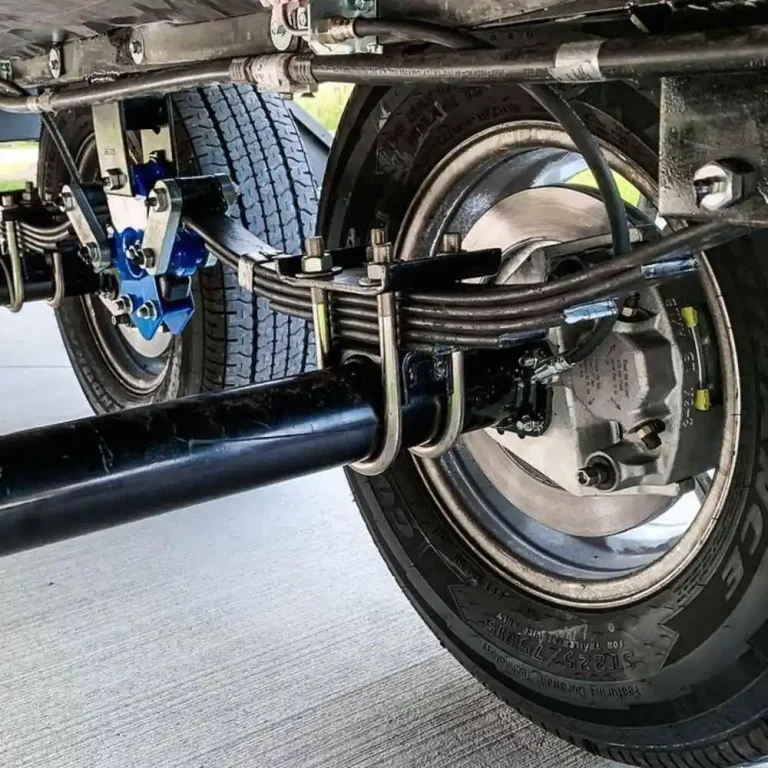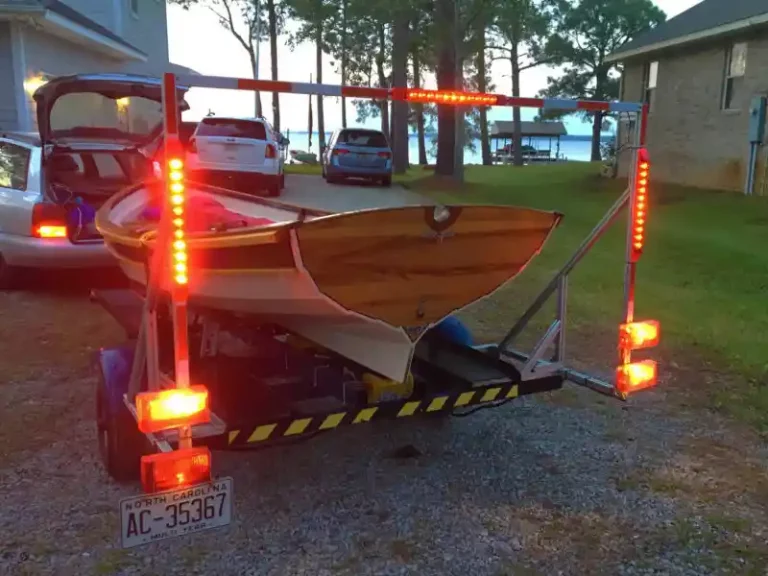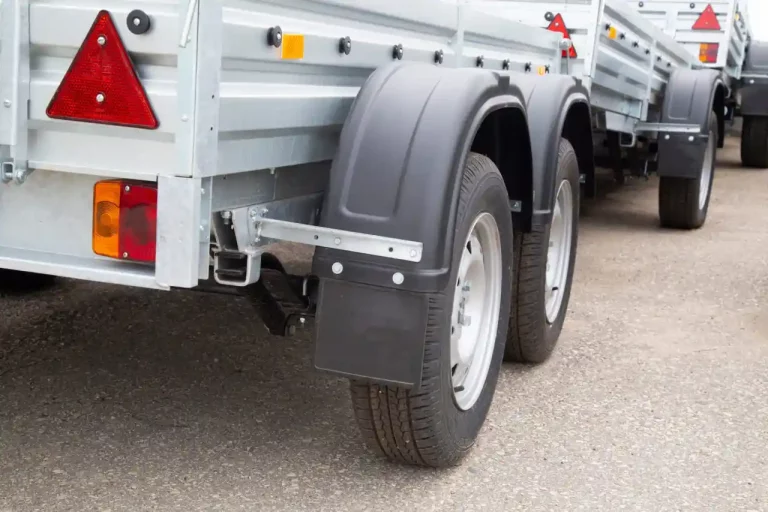Choosing the right trailer coupler is crucial for a seamless towing experience. Whether you’re hauling a boat, RV, or equipment trailer, the coupler is a key component ensuring that your trailer stays secure and connected to your towing vehicle. This guide will help you understand the different types of trailer couplers available and how to select the perfect one for your needs.
Understanding Trailer Couplers
What is a Trailer Coupler?
A trailer coupler is a mechanical device that attaches the trailer to the hitch on the towing vehicle. It provides a secure connection and allows for articulation and movement during towing. The coupler fits over the hitch ball and locks in place, ensuring that the trailer follows the towing vehicle smoothly and safely.
Importance of Choosing the Right Coupler
Selecting the correct trailer coupler is important for both safety and performance. A mismatched or improperly secured coupler can lead to accidents, trailer sway, and even disconnection during transit. It’s crucial to match the coupler to your trailer’s specifications and the type of towing you will be doing. With the right coupler, you can ensure stability, reduce wear and tear on your trailer, and enhance overall safety.
Types of Trailer Couplers
A-Frame Couplers
Compatibility and Usage
A-frame couplers are commonly used with trailers that have an A-frame front end. They provide robust and stable connections, making them ideal for utility trailers, travel trailers, and cargo trailers. A-frame couplers are designed to fit between the two arms of the trailer’s A-frame, creating a strong attachment point. When selecting an A-frame coupler, ensure it matches the size and weight capacity requirements of your trailer.
Straight-Tongue Couplers
Key Features and When to Use Them
Straight-tongue couplers are designed for trailers with a straight or pole tongue. They are typically used on smaller utility and boat trailers. These couplers are mounted at the end of the trailer tongue and are relatively easy to install and maintain. The key features of straight-tongue couplers include a compact design, ease of use, and compatibility with standard hitch balls. When choosing a straight-tongue coupler, consider the weight of your trailer and ensure that the coupler’s load capacity is adequate.
Gooseneck Couplers
Advantages in Heavy-Duty Applications
Gooseneck couplers are designed for heavy-duty applications and are commonly used on livestock trailers, flatbed trailers, and large equipment trailers. These couplers attach to a hitch ball mounted in the bed of a pickup truck, providing increased stability and weight distribution. The advantages of gooseneck couplers include their ability to handle heavier loads, reduced trailer sway, and improved maneuverability. When selecting a gooseneck coupler, ensure it is compatible with your towing vehicle and meets the weight requirements of your trailer.
Factors to Consider When Selecting a Trailer Coupler
Load Capacity Requirements
Matching with Your Vehicle and Trailer Weight
When choosing a trailer coupler, it’s essential to consider the load capacity requirements. This involves matching the coupler’s rating with the weight of your trailer and the towing capacity of your vehicle. Overloading a coupler can lead to failure and potential accidents. Always refer to the manufacturer’s specifications and ensure that the coupler can handle the combined weight of the trailer and its cargo. If you frequently haul varying loads, you might want to select a coupler with a higher weight capacity to accommodate these changes safely.
Material and Durability
Comparing Steel vs. Aluminum Couplers
The material of the trailer coupler affects its durability and longevity. Steel couplers are strong and don’t break easily, so they can be used in heavy-duty situations. They are heavier, though, and may rust if they aren’t taken care of properly. On the other hand, aluminum couplers are light and don’t rust, which makes them perfect for lighter trucks and places with a lot of moisture. When selecting a coupler, consider the environment in which you will be towing and choose a material that offers the best balance of strength and durability for your needs. Additionally, consider whether you’ll be towing in salty or humid conditions, as this will impact the material’s longevity.
Hitch Ball Size Compatibility
Common Hitch Ball Sizes and Their Applications
Hitch ball size compatibility is another critical factor in selecting the right trailer coupler. Common hitch ball sizes include 1-7/8 inches, 2 inches, and 2-5/16 inches. Each size is suitable for different applications and weight ranges. For example, a 1-7/8 inch ball is typically used for lightweight trailers, while a 2-5/16 inch ball is used for heavy-duty trailers. Always check the coupler’s specifications and ensure that it matches the hitch ball size on your towing vehicle. Using the correct size ensures a secure connection and reduces the risk of disconnection during transit. It’s also wise to have a selection of hitch balls on hand if you tow multiple trailers with varying ball sizes.
Installation and Maintenance Tips for Trailer Couplers
Proper Installation Practices
Tools Required and Step-by-Step Guide
Proper installation of your trailer coupler is crucial for safety and effectiveness. To begin with, gather the necessary tools, which typically include wrenches, screwdrivers, and possibly a torque wrench. Follow these steps for a seamless installation:
- Align the Coupler: Position the coupler over the trailer tongue, ensuring it’s straight and centered.
- Secure the Coupler: Use bolts and nuts to attach the coupler, tightening them to the manufacturer’s recommended torque specifications.
- Check Alignment: Ensure that the coupler is correctly aligned by checking for any tilts or gaps.
- Locking Mechanism: Test the locking mechanism to ensure it securely attaches and releases from the hitch ball.
Following these steps can help you achieve a secure and reliable installation.
Regular Maintenance Practices
Inspecting for Wear and Tear
Maintaining your trailer coupler is essential to ensure long-term performance and safety. Begin by regularly inspecting the coupler for signs of wear, rust, or damage. Check the locking mechanism for any dirt or debris that could impede its function. If you notice cracks, excessive wear, or any malfunction, it’s crucial to replace the coupler immediately to prevent potential accidents.
Lubricating the Coupler Mechanism
Periodic lubrication is essential for the smooth operation of your trailer coupler. Use a high-quality lubricant on the internal locking mechanism to reduce friction and prevent wear. Make sure to also lubricate the trailer coupler’s ball socket to minimize metal-to-metal contact. Regular lubrication ensures the coupler operates smoothly and extends its lifespan.
Safety Tips for Using Trailer Couplers
Performing a Pre-Trip Check
Checklist for Ensuring Safe Operation
Performing a pre-trip check is a vital safety measure before setting out on any towing trip. Include the following steps in your checklist:
- Visual Inspection: Look for any visible damage or signs of wear on the coupler.
- Connection Check: Ensure the coupler is securely attached to the hitch ball.
- Locking Mechanism: Verify that the locking mechanism is fully engaged and operating correctly.
- Safety Chains: Make sure safety chains are crossed and securely attached to both the trailer and towing vehicle.
Running through this checklist can help prevent potential mishaps on the road.
Understanding Hookup Procedures
Steps for Secure Connection
Correct hookup procedures are essential for secure towing. Follow these steps to ensure your trailer is properly attached:
- Align Trailer and Vehicle: Back the towing vehicle up to the trailer, aligning the hitch ball with the coupler.
- Lower the Coupler: Use the trailer’s jack to lower the coupler onto the hitch ball.
- Secure the Coupler: Engage the locking mechanism, ensuring it clicks and secures the trailer to the hitch ball.
- Attach Safety Chains: Cross the safety chains under the trailer tongue and attach them to the hitch. This step helps catch the trailer tongue if it disconnects.
- Check Lights: Ensure all trailer lights are connected and functioning properly, including brake lights, turn signals, and running lights.
By following these steps, you can guarantee a secure hookup and safer towing experience.
Tailoring Your Choice to Specific Needs
Choosing the right trailer coupler involves considering various factors and understanding your specific towing requirements. Assess the type of trailer you have, the weight you will be towing, and the conditions in which you will be towing. By taking these elements into account, you can select a trailer coupler that offers optimal performance, safety, and durability for your unique needs. Remember, a carefully chosen coupler enhances your towing experience, providing peace of mind and reliability on every journey.
Qingdao Go Trailer Parts Company, a leading manufacturer based in Qingdao, China, specializes in producing high-quality trailer couplers designed to ensure secure and reliable connections between vehicles and trailers. With over 15 years of experience in the trailer parts industry, the company leverages advanced production equipment, including CNC machines, laser cutting machines, and other automated tools, to craft durable and precise couplers. These couplers are essential for various towing applications, providing a robust and safe link that facilitates smooth and stable transportation. Go Trailer Parts offers a wide range of coupler types and sizes to meet diverse towing requirements, ensuring compatibility with different trailers and vehicles. They provide all kinds of trailer couplers with 2600KG Europe Unbraked Trailer Coupling and 4.4T Australian Override Brake Trailer Coupler among their most popular products.
The company’s commitment to quality and safety is evident in its rigorous manufacturing processes and the expertise of its professional engineers and experienced workers. Customers who choose Go Trailer Parts can escape the problems that come with dealing with middlemen, which saves them time and money in the long run. The company is proud of its commitment to taking care of customers in a warm, friendly, and fast manner, without sacrificing safety, quality, or honest business practices. Go Trailer Parts is one of the best trailer parts companies in China because it always tries to do the best. Customers all over the world can trust it to provide them with high-performance trailer couplers.


